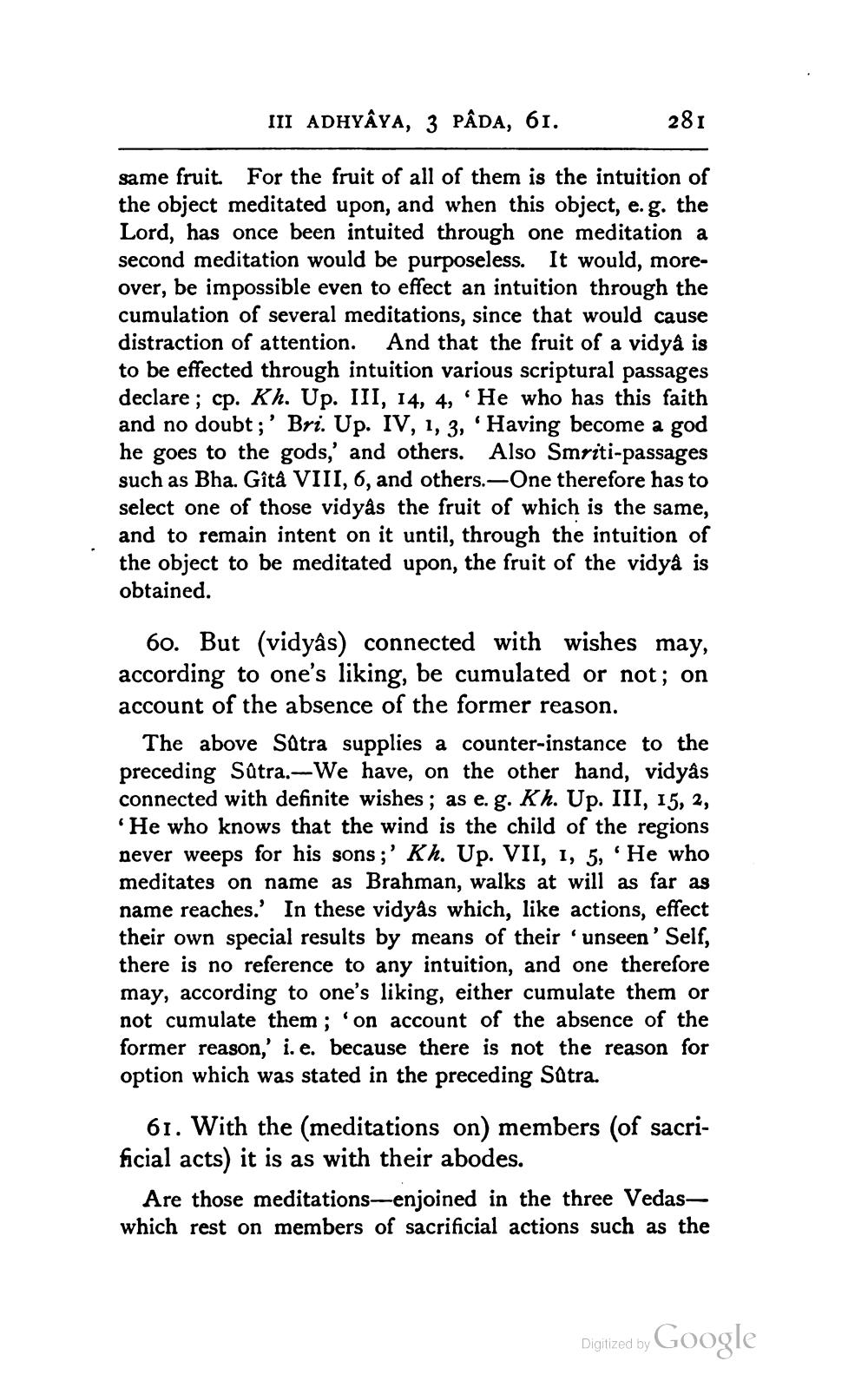________________
III ADHYAYA, 3 PÂDA, 61.
281
same fruit. For the fruit of all of them is the intuition of the object meditated upon, and when this object, e.g. the Lord, has once been intuited through one meditation a second meditation would be purposeless. It would, moreover, be impossible even to effect an intuition through the cumulation of several meditations, since that would cause distraction of attention. And that the fruit of a vidya is to be effected through intuition various scriptural passages declare ; cp. Kh. Up. III, 14, 4, 'He who has this faith and no doubt;' Bri. Up. IV, 1, 3, 'Having become a god he goes to the gods,' and others. Also Smriti-passages such as Bha. Gîtà VIII, 6, and others.—One therefore has to select one of those vidyâs the fruit of which is the same, and to remain intent on it until, through the intuition of the object to be meditated upon, the fruit of the vidyå is obtained.
60. But (vidyâs) connected with wishes may, according to one's liking, be cumulated or not; on account of the absence of the former reason.
The above Satra supplies a counter-instance to the preceding Sutra.-We have, on the other hand, vidyâs connected with definite wishes; as e. g. Kh. Up. III, 15, 2, "He who knows that the wind is the child of the regions never weeps for his sons;' Kh. Up. VII, 1, 5, 'He who meditates on name as Brahman, walks at will as far as name reaches. In these vidyas which, like actions, effect their own special results by means of their unseen 'Self, there is no reference to any intuition, and one therefore may, according to one's liking, either cumulate them or not cumulate them ; 'on account of the absence of the former reason,' i.e. because there is not the reason for option which was stated in the preceding Satra.
61. With the (meditations on) members (of sacrificial acts) it is as with their abodes.
Are those meditations-enjoined in the three Vedaswhich rest on members of sacrificial actions such as the
Digitized by
Digilzed by Google




